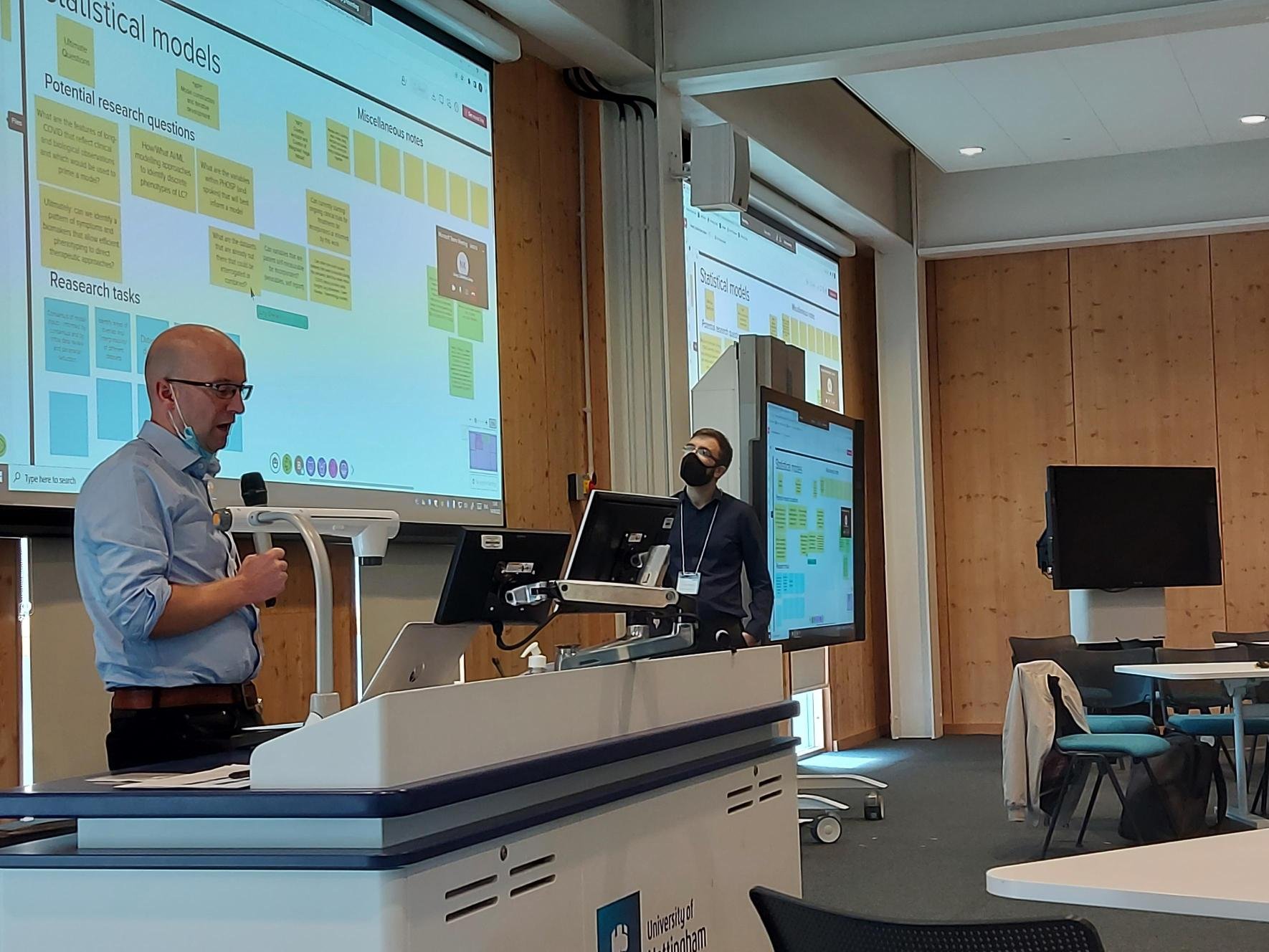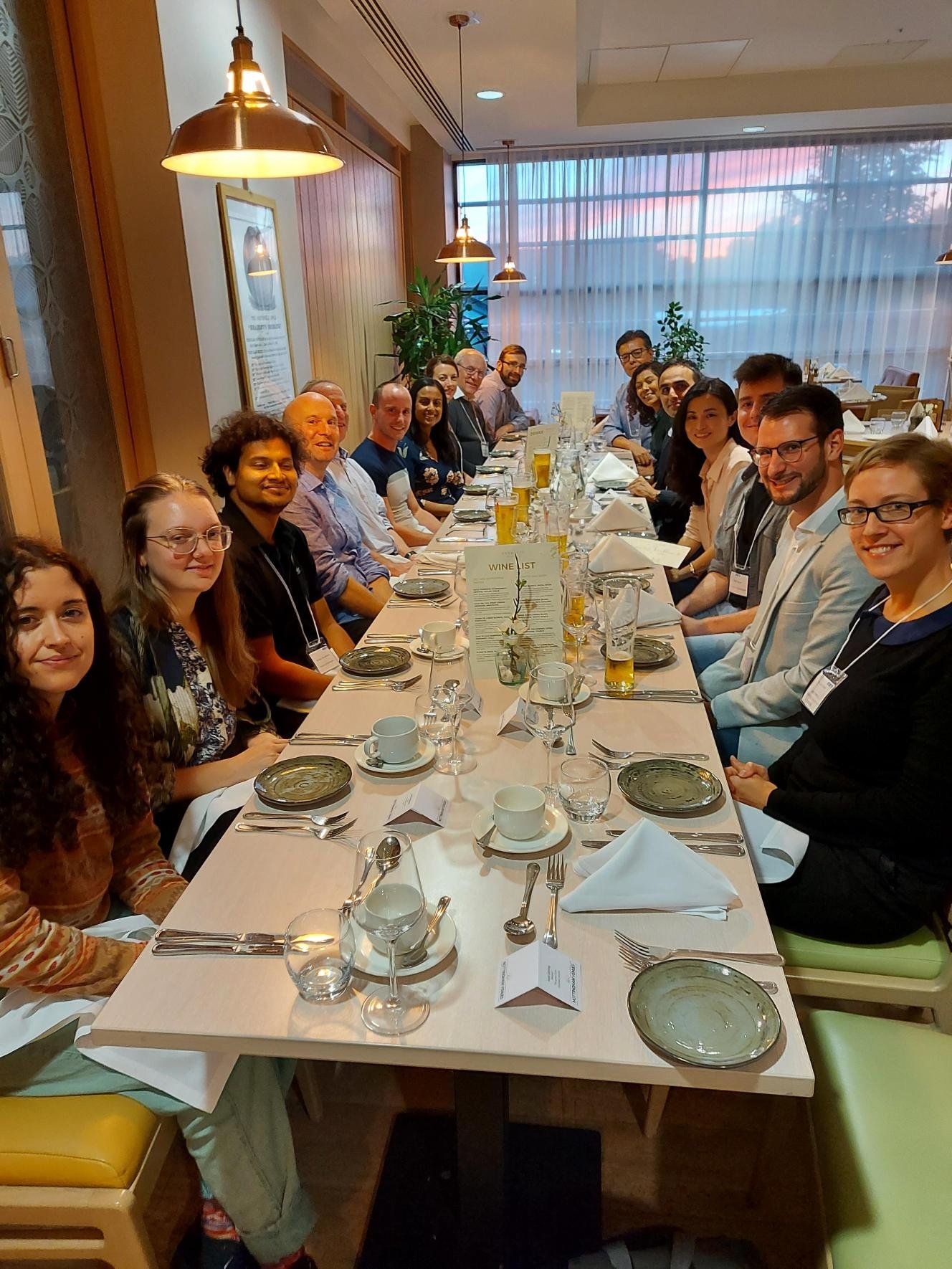Understanding Long COVID: A Challenge-Led Sandpit
BIOREME held our first Sandpit event on the 13 - 14 September at the University of Nottingham. The event had four key aims:
To identify key research challenges for Long COVID that can be addressed using the data presented and the expertise of the participants.
To form new interdisciplinary collaborative groups who will propose solutions to these challenges
To fund follow-up activities (e.g. workshops or meetings) that will enable these collaborations to develop competitive grant proposals
To publish a statement piece in an academic journal to outline the challenges and proposed solutions developed in the sandpit.
On the first day we explored the research space with a series of presentations covering a range of approaches in Understanding Long COVID including; The use of novel imaging techniques such as Xenon MRI for better understanding, diagnosis and treatments (Prof Jim Wild), Multidisciplinary and system science approaches including Longitudinal studies, Lived experience surveys and DELPHI consensus (Dr Mark Faghy), studies of the immunological responses (Prof Danny Altmann), explorations of the mechanisms underlying the post-hospitalisation consequences of COVID-19 and the impact of interventions (Prof Chris Brightling), investigation of microclots as a contributing factor to Long COVID (Prof Resia Pretorious).
We were grateful to be joined by patients who provided a lived experience of Long COVID and how it had impacted every aspect of their lives. We also heard from Dr Binita Kane, a respiratory physician who shared her personal journey of caring for her child with Long COVID and the challenges facing children and adults seeking support and treatment in the UK.
The second day kicked-off with a talk from Dr Tom Giles (University of Nottingham digital services) who explained how their research with HDR-UK is developing innovative data sharing platforms, including CO-CONNECT for finding and sharing COVID related data from multiple studies. On the second day, taking into account the research presentations from day 1, the attendees split into groups centred around two key themes; Biophysical modelling and Statistical modelling of Long COVID. Following a series of exploration and feedback sessions the two groups refined their research ideas to develop two distinct project proposals. BIOREME awarded the 10k of funding available between the two groups who will be using the funding to support grant writing workshops to develop competitive grant proposals. BIOREME will support in the organisation of the follow-up events.
The BIOREME team are working with the medical writer who attended the event, Dr Sarah Nelson, to produce a statement piece based on the research and discussions during the sandpit.
We are looking forward to offering further support to the two groups and following how the ideas and collaborations develop.


